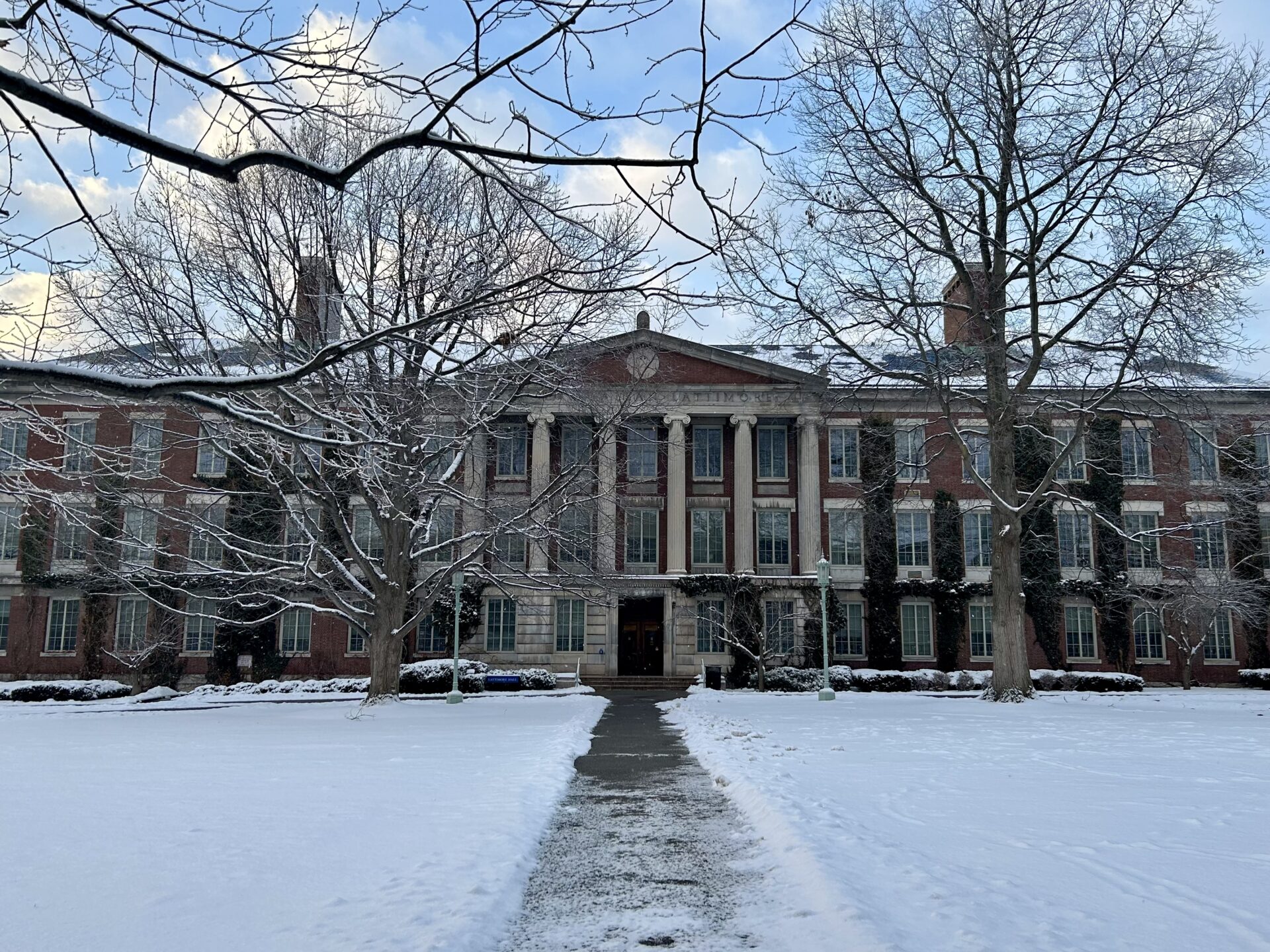Whenever I’m asked about what I’m studying, I like to respond that I’m majoring in Thought. “What?” you ask. “Isn’t that the root of every major?” Yes indeed, my friend. Philosophy is the root of everything.
The time is now. The place is Lattimore 531, Meliora 201, Dewey 2110D, Goergen 110, Harkness 202, Morey 350, and many more. We gather, students and professors alike, to think about the mysteries of the Universe. What is real? What is beauty? Is there an objective truth? How can we find out?
If you’re interested in Philosophy, the best way to start is by taking an intro course. Every semester, the department offers Intro to Philosophy, which encompasses a wide range of contemporary philosophical questions, as well as Introductory Logic (my favorite!) to teach you the basics of understanding arguments and formal systems, as well as an ethics class which is either Ethics–pretty much what it says in the title–or Contemporary Moral Problems, which invites you to take scope of the state of the world and what Philosophy can think about it. There’s also 201: History of Ancient Philosophy and 202:History of Modern Philosophy, which walks you through historical philosophical pursuits and how they relate to questions we’re still thinking about today. Depending on what professors are interested in teaching, you might also pick from courses like 152: Science and Reason, or 120: Ethics of Technology.
Ok, so you’ve taken a Philosophy class. What for? If you’re me, the obvious answer is that you wanted to expand your mind and feel yourself become smarter. If you’re being practical, it might be to fulfill one of your open curriculum requirements.
At Rochester, besides the one required writing class, students have to complete a major in one of our divisions (Natural Sciences and Engineering, Social Sciences, and the Humanities) as well as clusters in the two others. A cluster is a set of three thematically related courses, and the Philosophy Department offers seven different clusters, ranging from ‘Knowledge, Mind and Nature’ to ‘Ethics and Values.’ Almost all satisfy the Humanities requirement, and the last one, ‘Logic,’ can be used for Natural Sciences. So if you never, ever want to do anything sciencey again, you can take Logic instead!
As a Philosophy major, it’s often surprising to me that there’s not that many of us. My classes are always full! But that’s because many, many students are either minoring or clustering in Philosophy, or just taking some electives to broaden their horizons. Having such a diversity of perspectives in class makes for even better discussion, and I’m super grateful that we get a wide range of differences in our thoughts and the way that we approach thinking about the world.
Outside of courses, you can join the Philosophy Undergraduate Council, a group that meets in the department’s lounge every Friday afternoon to eat snacks and fight with each other about every topic under the sun. We’ve had sessions on death, on language, on the trolley problem, on aesthetics, etc. It’s a great environment to be curious and there’s no expectation to have done any kind of reading beforehand, so you can just enjoy yourself and see where your reflection takes you.
A few times a semester, there are also Philosophy Colloquia. Faculty members from different institutions are invited to present their work, followed by a Q&A session where faculty, grad students and undergrads alike are invited to interrogate the work. We also have receptions afterwards, which are really nice for just hanging out and talking about other things, as well as getting to know more people in your field. This semester, I’ve attended talks on Metadisputes and Metaphysics. And every two years, we host a conference on Epistemology, with invited speakers and the chance for graduate students to present their research.
My favorite parts of being a Philosophy major are many. For starters, I’ve gotten to take some of my favorite classes: Love and Friendship in Ancient Philosophy was a high point, as well as Logical Methods, and Theory of Knowledge. I’ve also enjoyed how the rigorous thought processes I’ve developed have carried over into my other major, and I’ve started a cluster in Linguistics after discovering my interest in Philosophy of Language, so that’s another distribution requirement taken care of.
I especially value my experience as a workshop leader for Intro Logic, which I’m now in my second semester of teaching. I’m big on logic, and taking that class for the first time exposed me to a discipline I had never really considered before. I’m now on the Philosophy of Science track in the major, I’ve taken three additional courses in Logic, and I love getting to work with students to convey my passion for the subject, and hope that they’ll end up agreeing with me.
Learn more about the Philosophy Department.
That’s it for now. I hope to see you in class someday!

